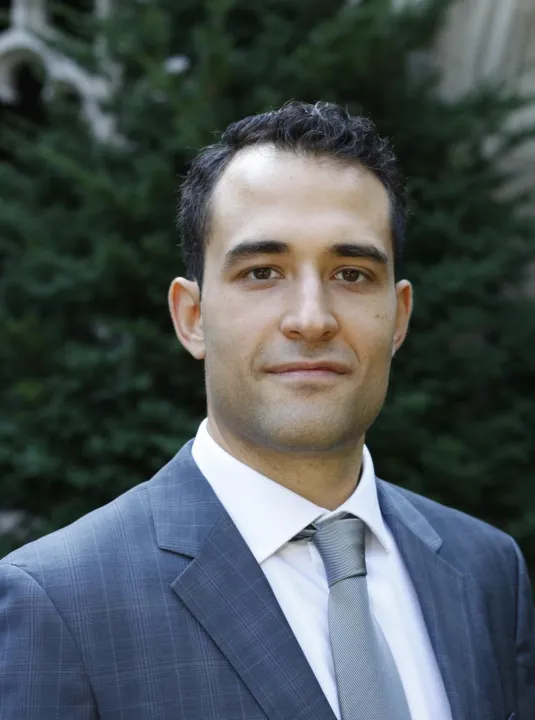
Moderating Without Censuring
Social media platforms have become an indispensable component of public discourse. These platforms, which initially promised to democratize access to information, have evolved into arenas where both democratic engagement and toxicity flourish side by side.
Social media companies have made efforts to tackle these problems. Hate speech has been officially prohibited on YouTube since at least 2006, on Facebook since at least 2012, and on X (formerly, and henceforth, Twitter) since 2015. However, both Facebook and Twitter recently cut back their content moderation efforts, as content moderation remains highly controversial. Some contend that platforms do not moderate enough, while others fear that moderation stifles free expression and restricts online discourse.
As harmful and extremist content continues to pose tangible risks, policymakers and platforms face a critical challenge: how can online speech be regulated without compromising freedom of expression?
Social Media at a Crossroads
As on many issues, when it comes to content moderation policies, the United States and Europe appear to have taken very different directions. While in the United States — especially with the beginning of the Trump administration — content moderation has been rolled back across most major social media platforms, European lawmakers have increasingly passed legislation that forces social media platforms to moderate content in violation of European hate speech law. Which direction is more desirable? A prerequisite to answering this question is to understand if content moderation efforts are indeed effective in curbing online and offline hate.
Does Content Moderation Work?
We have tackled this question in several research projects which generated new and important insights into this crucial policy question. In one recent project, we studied the impacts of Germany’s “Netzwerkdurchsetzungsgesetz” (NetzDG), one of the world’s first comprehensive legal interventions aimed at curbing online hate speech. The findings are clear: increased content moderation is able to significantly reduce the prevalence of hateful speech on social media. Even more strikingly, we also document that the increased content moderation also leads to a measurable decline in hate crimes against refugees. These results highlight the role social media plays in shaping offline behavior. Prior research has demonstrated the link between online hate speech and real-world violence, but the NetzDG study provides direct causal evidence that moderation policies can mitigate these offline effects. This has significant implications for policymakers considering similar interventions in other countries. Taken together, these findings suggest that content moderation is able to achieve one of its primary policy goals.
Did Content Moderation Distort Online Debates?
One of the most persistent concerns about content moderation is the tension between curbing harmful speech and preserving the plurality of online discourse. Critics argue that policies like the NetzDG can encourage platforms to over-censor content out of fear of financial penalties.
In our study we find no evidence that the law led to a significant decline in overall political discussions or the variety of topics covered on Twitter. Rather than stifling engagement, the law appears to have contributed to a broader inclusion of voices in online conversations. For many users, platforms with stricter moderation policies may feel more accessible and less hostile. Web traffic data suggests that the NetzDG actually increased the number of users on affected platforms, reinforcing the idea that effective moderation can create a more welcoming digital environment.
The Trade-Offs of Content Moderation
Despite the positive findings, there are still important unresolved questions about the broader implications of content moderation policies. While the NetzDG successfully reduced hate speech and hate crimes, it remains unclear whether similar policies in different contexts would yield the same results. Additionally, concerns about the chilling effect of content moderation persist. While this study found no major disruptions in political discourse, long-term effects on self-censorship and political engagement warrant further investigation.
In other methodological research, we have documented that the removal of toxic content can indeed lead to significant distortions of online content comparable to removing entire topics of online debate altogether.
The Path Forward
The insights from these research projects offer a glimpse into the potential of well-enforced moderation policies to curb online toxicity and reduce real-world harm. However, they also highlight the need for nuanced approaches that balance the benefits of moderation with the fundamental principles of free expression. Policymakers must ensure that such laws are designed with built-in safeguards against abuse and overreach, particularly in contexts where governments might use content moderation as a tool for political suppression.
Ultimately, content moderation is not just a technical issue — it is a question of how we define and protect democratic discourse in the digital age. If done thoughtfully, regulations can foster healthier online environments while preserving the vibrant exchange of ideas that social media was meant to facilitate. The challenge of content moderation is not whether to moderate, but how to do so in a way that enhances — rather than erodes — public discourse.


